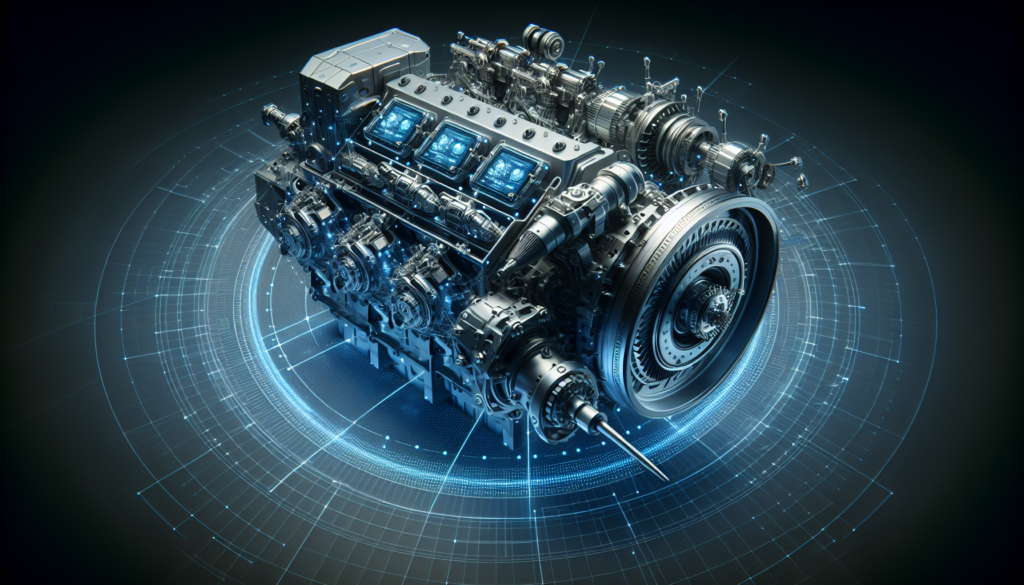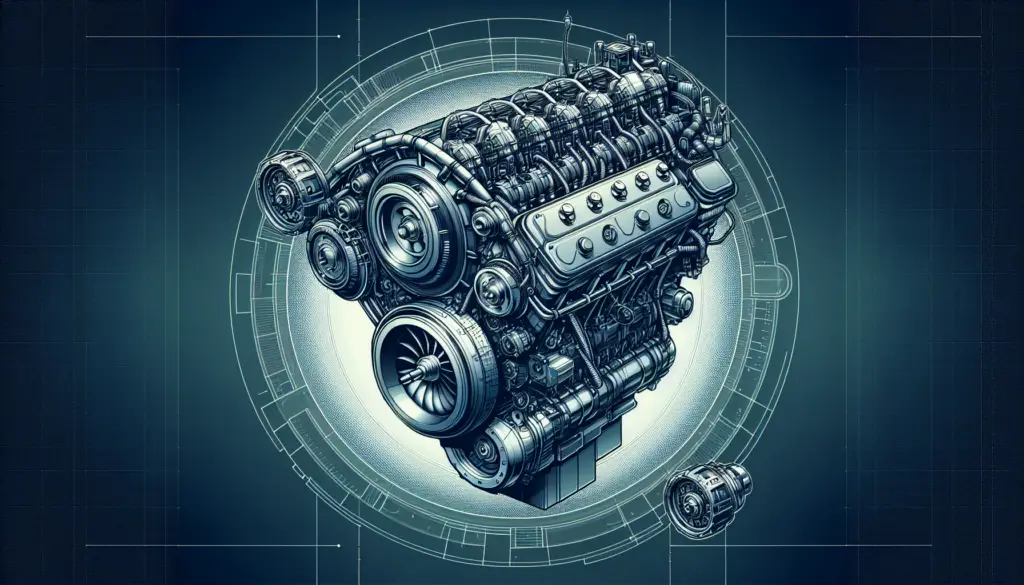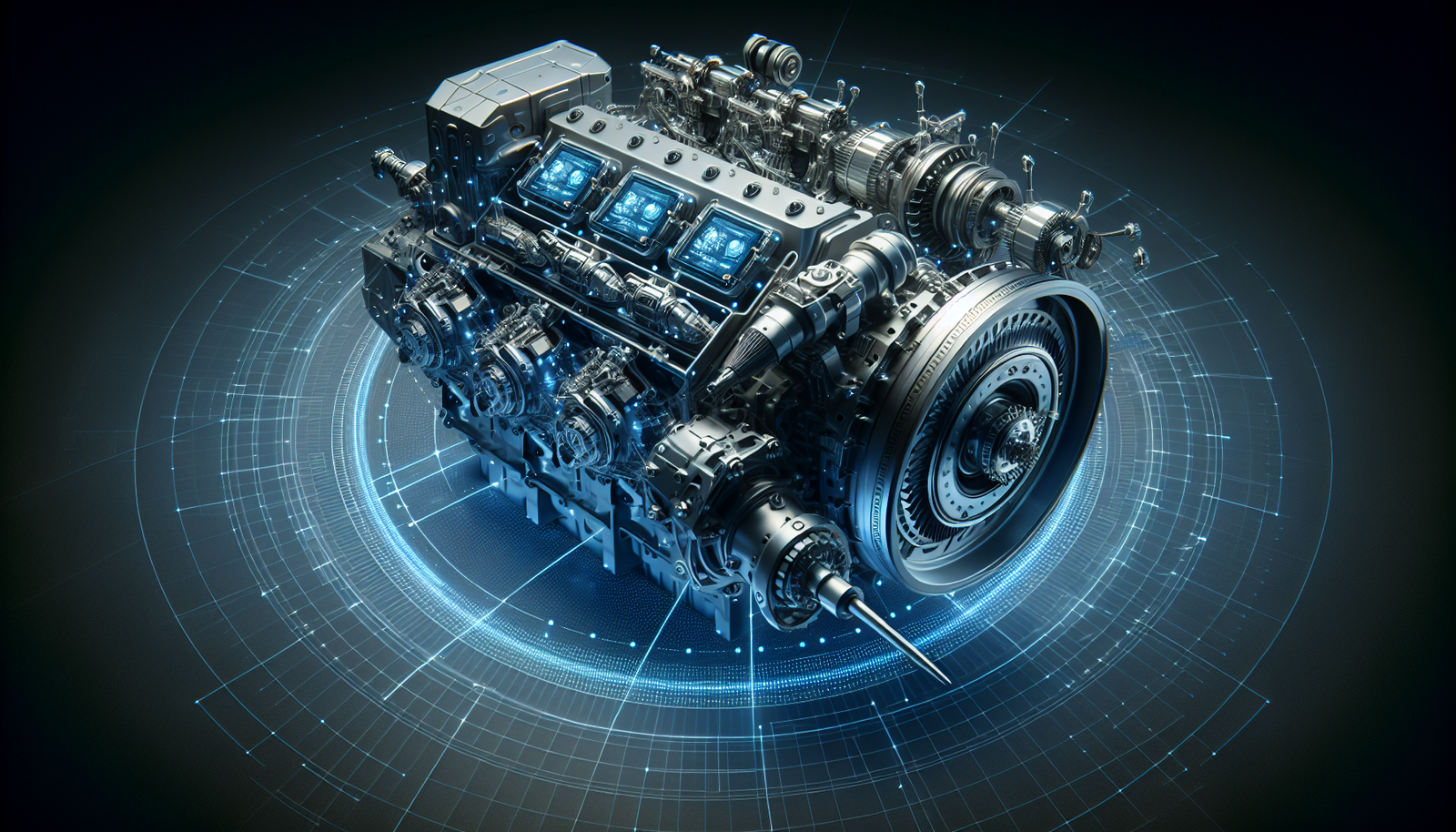Prepare to navigate the thrilling waters of innovation as you discover the top boat engine technologies on the horizon. This article will steer you through the advancements promising to make waves in the boating world in the coming year. From eco-friendly engines to technologies that enhance performance and efficiency, you’re about to set sail on a voyage of discovery into the future of boating. The revolution is coming, and it’s time to get your sea legs ready!

Electric Motor Systems
In the age of growing environmental concerns, there’s an increasing focus on emission reduction in all sectors. The boating industry is no exception. Electric motor systems offer a clean, eco-friendly alternative to conventional gasoline engines. These systems are becoming increasingly popular in a world seeking to reduce their carbon footprint.
Increasing Focus on Emission Reduction
The reduction of emission is one of the key incentives for the shift towards electric motor systems. These engines produce no exhaust, which means they produce no harmful emissions. By choosing electric, you drastically cut down on your carbon emissions and contribute to cleaner air and water.
Benefits of Electric Motor Systems
Apart from environmental benefits, electric motor systems come with a range of other advantages. They’re extremely quiet which offers a serene boating experience. On top of this, they require less maintenance due to fewer moving parts. Better yet, electricity is cheaper than gasoline, so your long-term fuel costs will decline.
Mainstream Manufacturers Embracing Electric
Given the clear advantages, even mainstream manufacturers are beginning to embrace electric engines. Major boat builders are now offering electric options, thus expanding the market and offering greater choice for eco-conscious boaters.
Hybrid Engine Technologies
Not ready to completely switch to electric? Hybrid engine technologies marry the best of both electric and gasoline engines. These engines employ both an electric motor and a gasoline engine, optimizing fuel efficiency and performance.
Optimization of Fuel Efficiency
Numerous studies suggest that hybrid engines can significantly improve fuel efficiency. They use the electric motor at low speeds and while idling, only employing the gasoline engine at high speeds. This system reduces fuel consumption and results in cost savings.
Reduced Environmental Impact
While not entirely emission-free, hybrid engines are a step in the right direction. They emit fewer pollutants than traditional engines, thereby reducing their environmental impact.
Player in Hybrid Engine Technology
Leading players in the industry are exploring this technology, developing more efficient and affordable hybrid systems. This competition is expected to speed up progress in this area, making hybrid engine technology more accessible in the near future.
Diesel Outboard Engines
Diesel engines for boats have seen significant improvements in recent years. Nowadays, diesel outboard engines offer improved functionality and performance compared to their predecessors, making them a viable choice for commercial boating needs.
Improved Functionality and Performance
Modern diesel outboard engines are designed to deliver high torque, making them excellent at moving heavy loads. They’re also known for their durability and longevity, capable of withstanding intensive use in commercial applications.
Implication for Commercial Boating Industry
These advancements have significant implications for the commercial boating industry. As these engines are typically more fuel-efficient and durable, they can result in significant operational savings in the long run.
Advancements in Fuel Efficiency
Another unique selling point of diesel engines is their fuel efficiency. Innovations have made these engines even more efficient, further reducing operational costs.

Fuel Cell Technology
Fuel cell technology is an emerging trend in the boating industry. They generate electricity through a chemical reaction, producing only water and heat as by-products. As such, they are a potential solution for zero-emission energy generation.
Zero-Emission Energy Generation
The main advantage of fuel cell technology is that it produces no harmful emissions. This makes it an environmentally friendly power source, matching with increasing regulations and sustainability goals in the boating sector.
Efficiency and Sustainability
Beyond their emission-free operation, fuel cells are also highly efficient and sustainable. They turn chemical energy directly into electrical energy, avoiding the energy losses associated with combustion processes. As a result, fuel cell systems hold great promise for a sustainable boating industry.
Prominent Players in Fuel Cell Technology
Several companies in the boating industry have recognised the potential of fuel cells and are developing their own fuel cell technology. These industry leaders are paving the way for more widespread use of this promising technology in the coming years.
Advanced Battery Systems
The efficiency and performance of any electric or hybrid boat largely depend on its battery system. Advanced battery systems have the ability to store more energy, provide greater power, and last much longer than conventional batteries.
Increasing Energy Storage Capacity
Advanced batteries can store significantly more energy than their traditional counterparts. This means that boats equipped with these batteries can travel longer distances on a single charge and maintain power for longer under demanding conditions.
Electronic Control Systems
In addition to greater storage capacity, advanced battery systems often feature sophisticated electronic control systems. These systems help manage power delivery, ensuring the most efficient use of the battery’s stored energy.
Impact on Boat Longevity and Efficiency
By providing more reliable power, advanced battery systems can significantly increase the longevity and efficiency of boats. This makes them a worthwhile investment for any boat owner interested in electric or hybrid technology.
Robotic Systems
The introduction of robotics is revolutionising the boating industry. By enabling autonomous boating technology, robotics can improve safety and navigation, making trips more enjoyable and less labor-intensive.
Autonomous Boating Technology
Robotic systems can be programmed to control the boat’s functions, including steering, throttle, and even navigation. This autonomous boating technology can make operations more intuitive and less physically demanding.
Integration with Other Systems
Moreover, robotic systems can be seamlessly integrated with other advanced technologies on your boat, including GPS and electronic control systems. This enables more efficient and precise control, enhancing both the performance and safety of the boat.
Impact on Safety and Navigation
By automating various tasks, robotic systems can significantly improve boat safety. For instance, the system can be programmed to maintain a safe course and prevent collisions, even in challenging conditions.
AI and Machine Learning
Artificial intelligence (AI) and machine learning are changing the way we interact with and control our boats. These technologies can predict maintenance needs, improve navigation, and analyse boat performance data.
Predictive Maintenance
AI systems can monitor the status of various components and predict when maintenance might be needed. This significantly reduces the risk of unexpected mechanical failures and helps ensure that your boat is always in optimal working condition.
Intelligent Navigation Systems
AI can also be used to create intelligent navigation systems, which can adjust the boat’s route based on current conditions and obstacles. This makes it easier to navigate challenging waters, allowing you to enjoy your boat ride to the fullest.
Data Analysis and Insights
Another crucial function of AI is data analysis. By analysing boat performance data, AI can provide insights into how to improve efficiency, reduce fuel consumption, and optimise speed.
Smart Sensors
Smart sensors are another technological advancement transforming the boating industry. By offering real-time system health monitoring and integrative analysis, they increase safety and improve operational efficiency.
Real-time System Health Monitoring
Smart sensors continuously monitor the status of various components, from the engine to the electrical system. They provide real-time feedback, allowing you to quickly respond to any issues before they become serious problems.
Integrative Analysis and Reporting
Smart sensors can analyse the data they collect and generate comprehensive reports. This allows you to gain a clear understanding of your boat’s condition and performance, helping you make informed maintenance and operational decisions.
Increased Safety and Prevention Measures
By detecting and reporting problems early, smart sensors can significantly improve safety. They allow for preventative maintenance and help avoid costly and potentially dangerous mechanical failures.
Internet of Things (IoT)
The Internet of Things (IoT) connects numerous devices and technologies, offering potential benefits such as remote control and monitoring, integration with other smart devices, and personalised user experiences.
Remote Control and Monitoring
IoT allows you to control and monitor your boat remotely. This can be particularly useful when your boat is moored or stored away from where you live, or when you want to check its status and adjust settings from afar.
Integration with Other Smart Devices
Your boat’s IoT system can also be integrated with other smart devices, such as your smartphone or tablet. This allows for more convenient control and monitoring, and lets you receive important notifications directly to your device.
Personalized User Experience
By integrating with other devices and technologies, IoT can provide a personalised user experience. It can adjust settings based on your preferences, making your boating experience more enjoyable and less hassle.
3D Printing
The potential of 3D printing for the boat engine industry is immense. From the production of tailored components to cost-effective repairs and upgrades, 3D printing promises to revolutionise boat maintenance and manufacturing.
Tailored Component Production
3D printing allows for the production of custom components at a fraction of the time and cost of traditional methods. This means you can get parts that are specifically designed for your engine, improving performance and ensuring a perfect fit.
Cost-effective Repairs and Upgrades
By 3D printing spare parts, you can carry out repairs and upgrades more cost-effectively. This technology can even be used to reproduce out-of-production parts, saving you from having to replace an entire engine just because one component is no longer available.
Future of Boat Engine Manufacturing
With the continued development of 3D printing technology, it’s conceivable that we could soon see entire engines being produced this way. This would revolutionise boat engine manufacturing, potentially making it faster, more efficient, and highly customisable.

